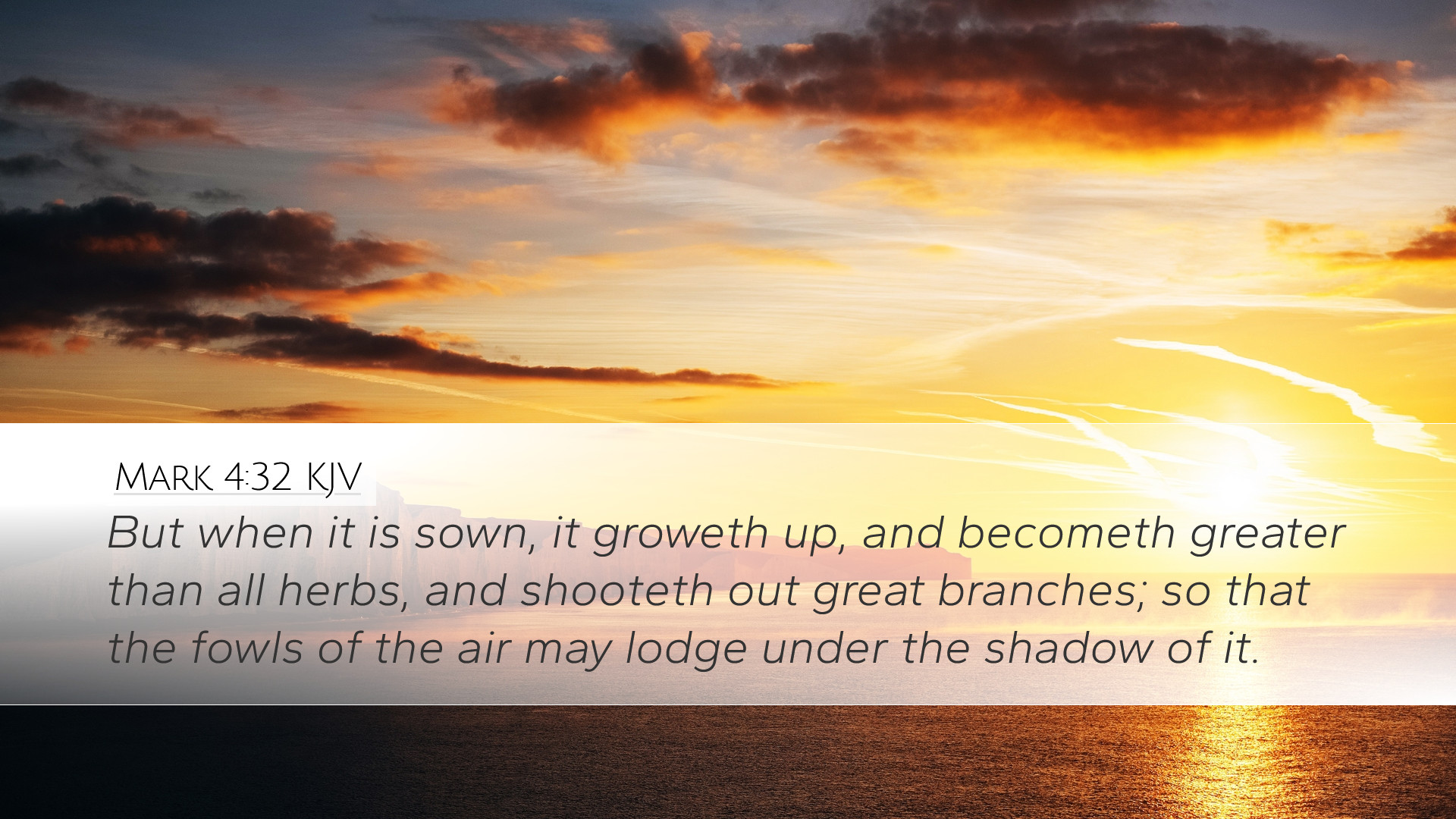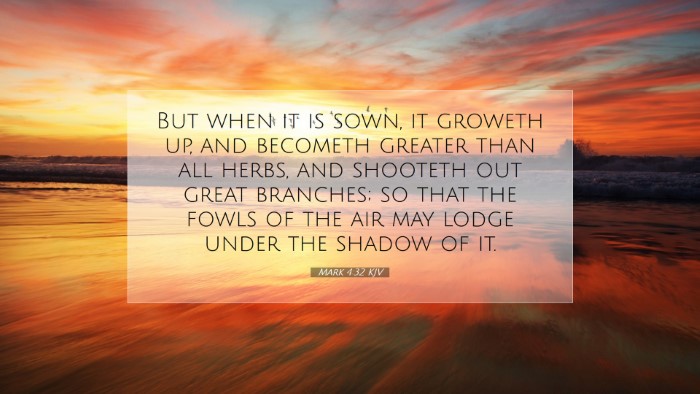Commentary on Mark 4:32
Verse: "But when it is sown, it groweth up, and becometh greater than all herbs, and shooteth out great branches; so that the fowls of the air may lodge under the shadow of it."
Introduction
The verse from Mark 4:32 is part of the parable of the mustard seed, which Christ used to illustrate the nature and growth of the Kingdom of God. In this commentary, we draw upon insights from various public domain resources, including the works of Matthew Henry, Albert Barnes, and Adam Clarke, to explore the theological depths and practical implications of this passage.
Theological Insights
1. The Mustard Seed as a Symbol
Matthew Henry highlights that the mustard seed, though one of the smallest of seeds, exemplifies the inconspicuous beginnings of the Kingdom of Heaven. This smallness signifies humility and the unexpected might of God’s work.
Albert Barnes further elaborates that the Kingdom's initial insignificance transforms into something great and influential, showcasing God's ability to amplify the seemingly trivial into a major force in His divine plan.
2. Growth Dynamics
The growth from a tiny seed to a large plant illustrates the gradual and yet powerful expansion of God’s Kingdom. Adam Clarke notes that this growth emphasizes the natural processes instituted by God, stressing that spiritual growth often mirrors botanical growth—slow, but ultimately triumphant.
The mention of branches spreading out symbolizes the shelter and provision that the Kingdom offers, as Jesus pointed out how birds find refuge under its shade, indicating that the Kingdom is both a source of strength and safety.
Practical Implications
1. Encouragement for Believers
This verse carries profound encouragement for believers who might feel small or ineffective in their faith. Henry beautifully states that even the smallest efforts in sharing the Gospel can lead to significant outcomes, hence believers should remain steadfast and hopeful.
Likewise, Barnes reminds us that God’s work often starts small, and believers should not despise humble beginnings but instead trust in God’s timing for growth and expansion.
2. Evangelical Mission
The imagery of the mustard seed emphasizes the evangelical mission of the church: to spread the Gospel widely, to reach out to those who seek solace. Clarke explains that just as birds lodge in the mustard plant, people from all walks of life should find a home in the Kingdom of God, reinforcing the church's calling to be inclusive and welcoming.
3. The Nature of Growth
The notion of growth in God’s Kingdom can also be contrastingly understood in the context of societal or cultural challenges. Henry points out that while the growth may sometimes face obstacles, the Kingdom ultimately prevails and manifests the glory of God—a reminder that believers must remain vigilant and patient, trusting in God's providence.
Conclusion
Mark 4:32 serves as a powerful reminder of how God works through seemingly insignificant beginnings to create something extraordinary. The insights gleaned from public domain commentaries reveal profound truths pertinent to pastors, students, theologians, and Bible scholars alike. These perspectives highlight the Kingdom of God’s potential for growth, the encouragement derived from small beginnings, and the mission of inclusivity that the church carries forward.
Reflection Questions
- How does the metaphor of the mustard seed challenge your understanding of faith and its impact?
- In what ways can you contribute to the growth of God’s Kingdom in your community?
- What does finding shelter in the branches of the mustard plant signify for your spiritual journey?


